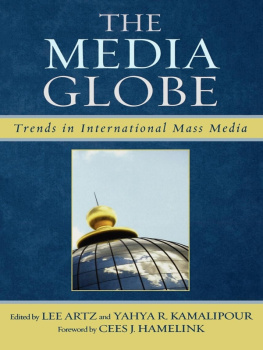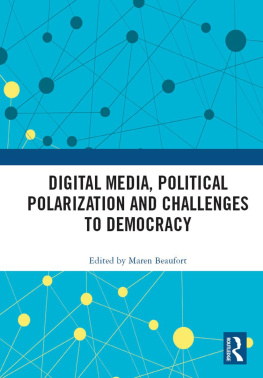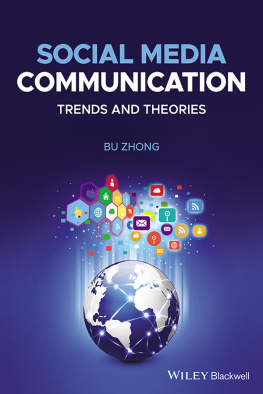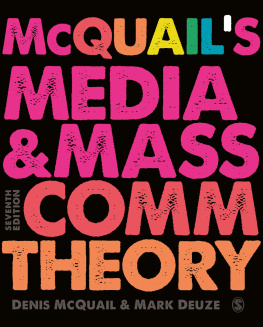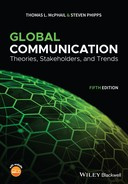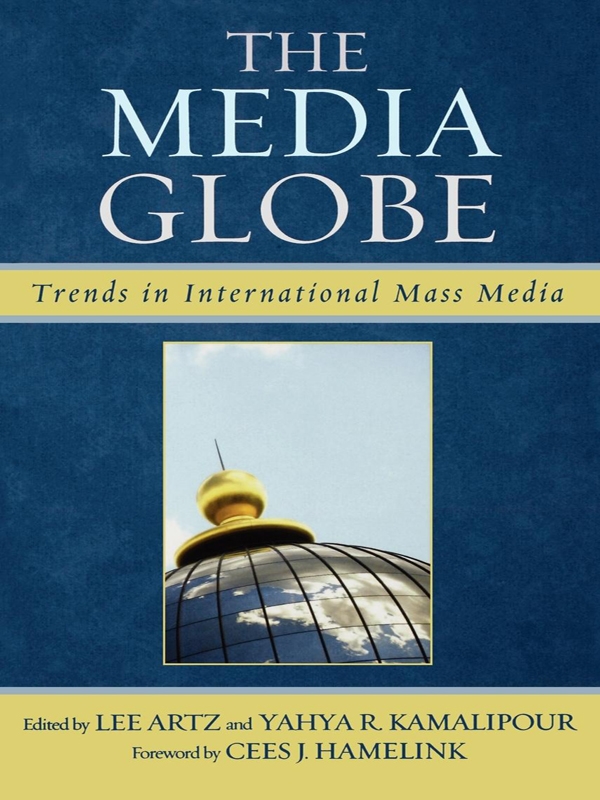About the Contributors
Lee Artz is associate professor in the Department of Communication and Creative Arts at Purdue University Calumet, where he is director of the Center for Instructional Excellence. Artz has published many book chapters and journal articles on international media, cultural diversity, and democratic communication. He is author of Cultural hegemony in the United States (2000) and coeditor of Marxism and communication studies: The point is to change it (2006), Bring em on! Media and politics in the Iraq War (2004), The globalization of corporate media hegemony (2003), Public media and the public interest (2002), and Communication and democratic society (2001).
Lyombe Eko is associate professor in the School of Journalism and Mass Communication at the University of Iowa. He teaches media law and ethics, comparative and international communication, and documentary video production. Eko has published articles in Communication Law and Policy, Loyola International and Comparative Law Review, International Journal of Communication Law and Policy, Communications and the Law, The International Journal of Comic Art, The Journal of Black Studies, and the Journal of Third World Studies. He has also contributed to several books and encyclopedias. Eko was also a journalist and award-winning producer for the African Broadcasting Union (URTNA) in Nairobi, Kenya, and at Cameroon Radio and Television Corporation, Cameroon, West Africa.
Cees J. Hamelink studied philosophy and psychology in Amsterdam. He is professor emeritus of International Communication at the University of Amsterdam and professor of Globalization, Human Rights, and Health at the Vrije Universiteit in Amsterdam. Hamelink has worked as a journalist as well as a consultant on media and communication policy for several international organizations and national governments. He is currently the editor-in-chief of the International Journal for Communication Studies: Gazette, past president of the International Association for Media and Communication Research, president of the Dutch Federation for Human Rights, founder of the Peoples Communication Charter, and board member of the international news agency Inter Press Service. Professor Hamelink has guest-lectured in over 40 countries and has published over 250 articles, papers, and chapters in academic publications. Among the 16 books he has authored are World communication (1995), The ethics of cyberspace (2000), and Human rights for communicators (2004). Forthcoming is a book on political ethics and communication.
Yahya R. Kamalipour is professor and head of the Department of Communication and Creative Arts at Purdue University Calumet. He has taught at universities in Ohio, Illinois, Missouri, Indiana, Oxford (England), and Tehran (Iran). His most recent coedited books are Bring em on! Media and politics in the Iraq War (2004); War, media, and propaganda (2004); The globalization of corporate media hegemony (2004); Global communication (2002); and Media, sex, violence, and drugs in the global village. He is the founder and managing editor of Global Media Journal ( www.globalmedia-journal.com ) and coeditor (with K. R. Rampal) of the State University of New York Press series in Global Media Studies.
Joe F. Khalil has more than ten years of professional television experience as director, executive producer, and consultant with CNBC Arabiya, MBC, MTV, and Orbit. For seven years, he was an instructor at the Lebanese American University, where his teaching and research focused on transnational broadcasting, programming, and production. His writings have been presented at several conferences and he has consulted for academic and professional organizations on media in the Middle East.
Alan Knight is chair of Journalism and Media Studies at Central Queensland University and president of its academic board. Knight is a former journalist employed by the Australian Broadcasting Corporation, Australian Associated Press, and Radio Television Hong Kong. He was appointed an Honorary Research Fellow at the Centre for Asian Studies at Hong Kong University in 1994 and is a board member of the Asian Media Information Research Centre (Singapore) and the Australian Centre for Independent Journalism. He writes and researches foreign correspondence, new media, radical publishing, and postcolonial journalism.
Marwan M. Kraidy is assistant professor of International Relations and International Communication at American University in Washington, D.C., and an expert on Arab media. He is the author of Hybridity, or the cultural logic of globalization (Temple 2005) and coeditor of Global media studies: Ethnographic perspectives (Routledge 2003). Kraidy has authored many articles in leading journals. He is completing his current book, Screens of contention: Arab media and the challenges of modernity, as a 20052006 Fellow at the Woodrow Wilson International Center for Scholars in Washington, D.C.
Jos-Carlos Lozano is director of the Center for Communication Research, Monterrey Institute of Technology, Mexico, and a former director of Mexico on the Executive Board of the Federation of Latin American Communication Schools. A member of the National System of Researchers, of the National Council for Science and Technology of Mexico, he is also the author of numerous books and journal articles in the areas of mass, political, and international communication. Lozano is former editor of the Mexican communication yearbook, volumes 1 4, and was TELEVISA chair at the Monterrey Institute of Technology, where he directed a massive, quantitative, and qualitative reception study in Mexico City, Guadalajara, and Monterrey. Currently, he holds the Audiovisual Media and Globalization in North America chair at the Monterrey Institute of Technology.
Kuldip R. Rampal is professor of Mass Communication at Central Missouri State University in Warrensburg. A widely published author, Rampal received the 1993 International Communication Award from the Republic of China on Taiwan for his writings on press and political liberalization in Taiwan. Rampal has coauthored the reference book International Afro mass media: A reference guide (1996) and coedited Media, sex, violence and drugs in the global village (2001). He is coeditor (with Y. Kamalipour) of the State University of New York Press series in Global Media Studies.
Jeanette Steemers is principal lecturer in Television Studies at the School of Media and Cultural Production, De Montfort University, Leicester, England. She is author of Selling television: British television in the global marketplace (2004), coauthor of European television industries (2005), and coeditor of the international journal Convergence: The Journal of Research into New Media Technologies. She is currently undertaking a two-year Arts and Humanities Research Councilfunded project on the Production Ecology of Preschool Television in Britain.
Africa: Life in the Margins of Globalization
Lyombe Eko
U ganda received a crash course in freedom of speech and of the press in, of all places, the bars of Kampala, the capital. As a result of media liberalization carried out under World Bank and International Monetary Fund (IMF) economic restructuring programs, tens of broadcasting licenses were issued to religious, communal, and ethnic groups, as well as media entrepreneurs (Ogundimu 1996). Two results of this liberalization were broadcast commercialization and cutthroat competition. When revelations of real or imagined government corruption, ineptitude, and scandal, as well as American-style globalTop 40 music, were not enough to attract and hold audiences, some newly licensed FM stations reinvented radio through a novel free speech phenomenonbarroom broadcasting, or Ekimeeza (literally, beer-hall talk) (Ibelema et al. 2004).

